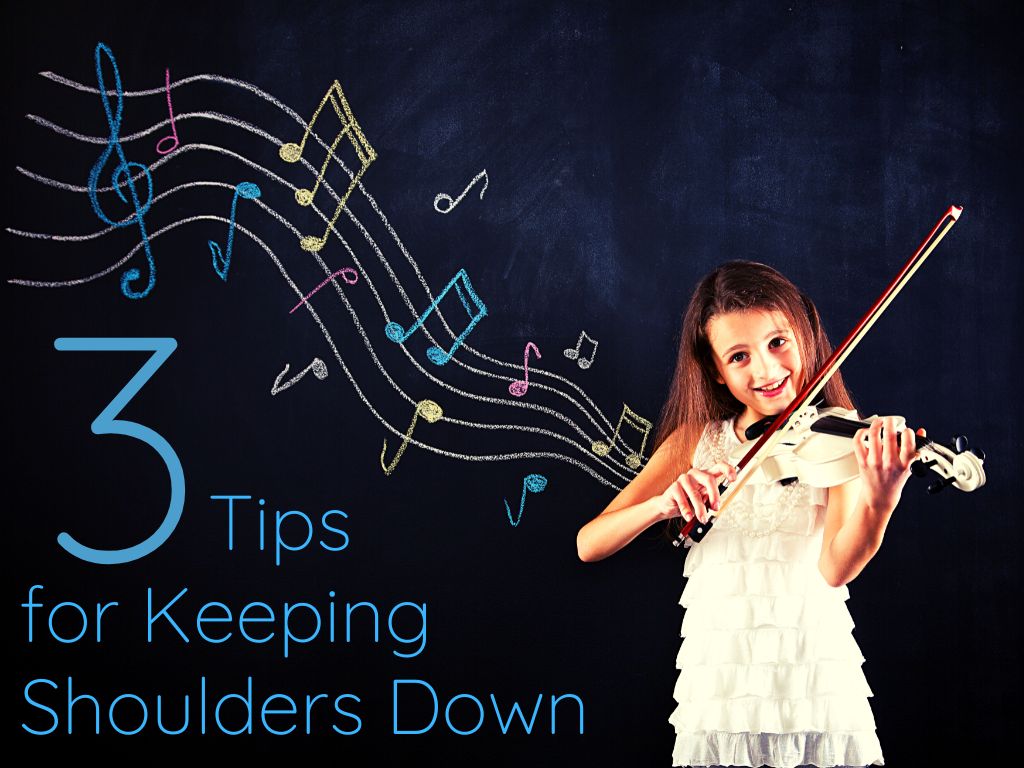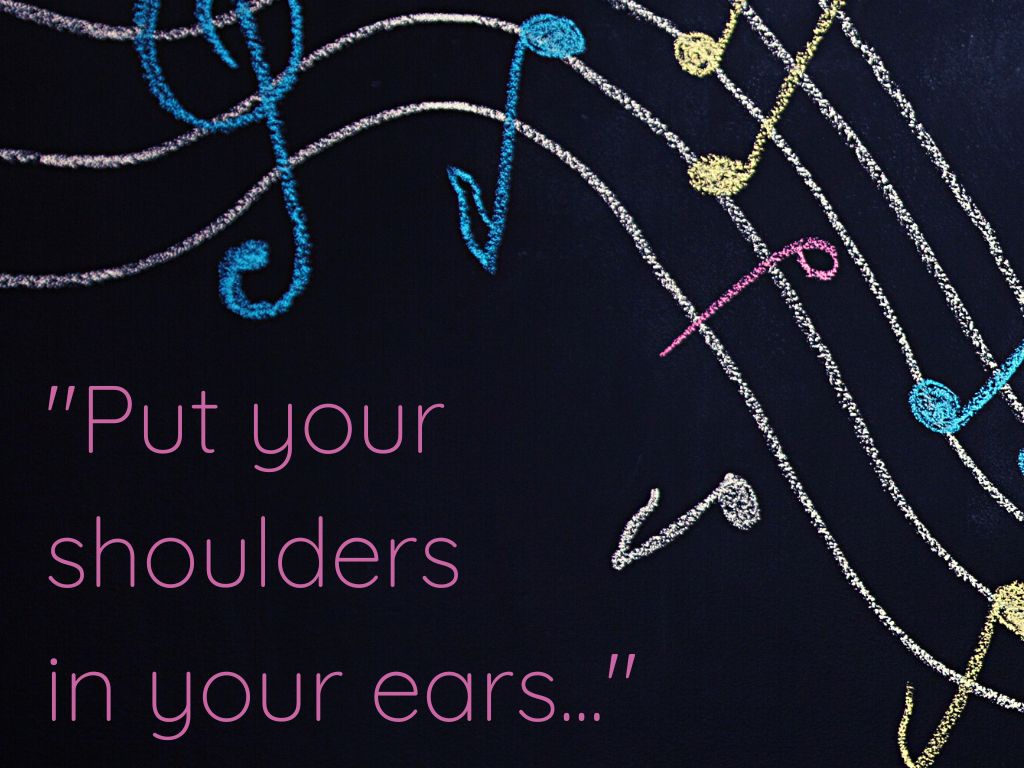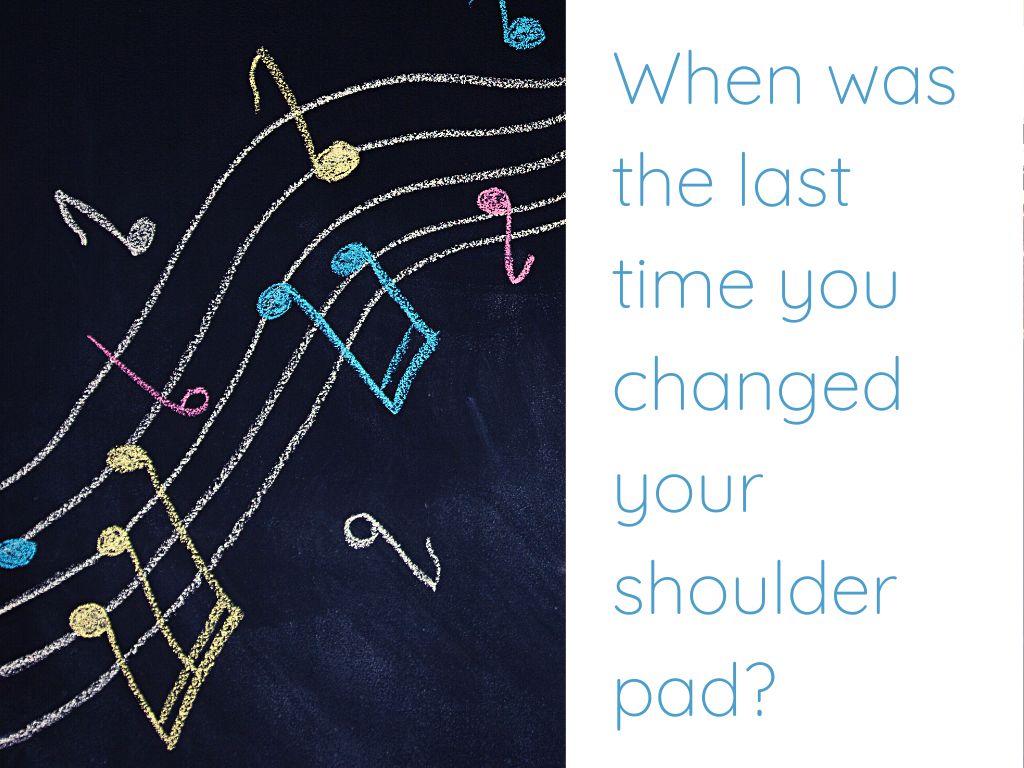|
After spending decades teaching and hours every day watching how the body's posture impacts the instrument's sound, I can not stress enough that the body is the first instrument. One of the most common problems is too much activation in the shoulders. Learn 3 innovative ways to train and teach the release of muscles in the shoulders in this blog post below. When we play the violin, both shoulders tend to tighten up and cause negative issues in our playing. Here are 3 tips to help violinists gain awareness in their shoulders and keep their violin playing healthy. 1- PRACTICE LAYING DOWN This is silly and awkward BUT highly effective. The laws of gravity will help a violinist feel a naturally aligned state in their body when they play laying down. Laying down while playing the violin is an incredible tool for the following three techniques: 1-Teaching the neck to release tension. 2- Supporting the shoulders in finding the base of their sockets. 3- Getting the knees to soften up. Young children love this because it feels like a novelty, however, this practice technique is appropriate for players of all ages and levels. Laying down while playing the violin will create a very unnatural feeling in the bow arm and compromise the sound, but the long-term results of alignment and awareness are more than worth the short-term compromises. 2- TIGHTEN UP: Go to the extreme to build awareness. Tighten up the shoulders as much as possible for 5 seconds and release. I use this verbal cue: "put your shoulders in your ears." After this intense use of muscles, the shoulders will respond with fatigue and rest by staying down in the bottom of their sockets. They may not always stay down for the rest of the lesson or practice session, but this exercise helps develop the necessary awareness to address tight shoulders and fix this problem in violin playing. In addition to creating muscle fatigue and natural inclination to release, this tip will also help a violinist realize the extreme of their range of motion so that they have more control in choosing where their shoulders go when playing. 3- EVALUATE THE CHIN REST AND SHOULDER PAD SET-UP: When was the last time you changed your *chin rest or shoulder pad? Young students with growing bodies have different proportions in their neck-shoulder-arms approximately every six months and, their playing needs are also growing. Chin rests and shoulder pads need to be re-evaluated for younger players on a regular basis because of this continual physical and musical growth. Most of us do not live in a major metropolitan area with a large string supply store to experiment with a variety of gear for our violins. Instead of this, stay up to date and informed of the variety of chin rests and shoulder pads by subscribing to string catalogs (links below). Also, consider the Poly-Pad which I have featured on the “Things I Love” page. This economical shoulder sponge has extra curves than competitors pads and is one of my favorites. When I moved to Oregon 15 years ago I purchased a Poly-Pad in each size and it really helped me individually fit all of my students. Interested in more tips for playing the violin? Below are 3 M4YV tutorial videos on vibrato, pizzicato and bow hold "bunny flips" that share ideas to help you bring out the best in your music making!
How do you help your student keep their shoulders relaxed when they play the violin?
0 Comments
|
Categories
All
Archives
February 2024
AuthorHi! It's me, Heather. I absolutely love working on the Music for Young Violinists project and all the many facets: blogging, website, music, teaching materials, freebies, videos, newsletter and giveaway contests. The best part is connecting with you so feel free to drop me a line. You can learn more about me on the "ABOUT" page. Thanks! |




 RSS Feed
RSS Feed
